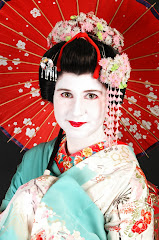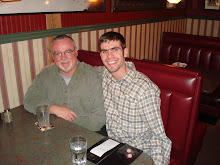What have you learned in our class about the importance of knowing the complete history of America and its connection to learning to honor and celebrate difference?
“Some of us are men, some are women. Some are gay, some are straight. Some are young, some old. Some are Christian, some Jewish, some Muslim, Hindu, Buddhist, and some atheist. [Some of us are black, some brown, and some white.] Some of us are short, and others tall. Some right-handed, some left-handed, some disabled. We have lots of differences; we are all unique. But deep down inside us, down in our DNA, we are 99.9 percent the same. And I believe we need to remember that” (White, This I Believe).
I can only agree with what Sherri White has frankly expressed. For me, living in a pluralistic society does not mean ignoring our differences nor does it mean being disrespectful to and taking for granted our privileges and blessings. Rather, living in a pluralistic community, to me, translates into the need for an appreciation and acceptance of my fellow neighbor's existence and well-being as well as the necessity of continually advocating for justice. I strongly believe that Dr. Weems' course (especially through her imagination-intellect theoretical framework) has encouraged deep introspection and reflection from my classmates and I. It has been a truly rich and memorable experience—one whose lessons I cannot imagine myself forgetting.
Throughout my readings and our classroom discussions, I was constantly being reminded of several incontrovertible facts—namely that I have been living a sheltered and disengaged lifestyle and have been doing so as a result of privilege and fear. (It was no coincidence that I selected racial FEAR as the topic of my mid-semester oral presentation. Consequently, I have been changed cognitively and behaviorally because of it). It seems that I have always sort of assumed that mom and dad would pay for my college tuition or that there would always be a hot meal waiting for me when I got home from school or work. To me, those were trivial matters and nothing that concerned me. How naive I was to think that those same luxuries are what rips apart dreams and infiltrates the daily lives of millions in our global community. In my attempt last year to live in solidarity with those people who are impoverished and marginalized, I struggled mightily. My monthly stipend was gone before I knew it and my daily struggles of teaching & advising predominantly black and Latino/a adolescents became rather severe (to the point where I had shooting pain up and down my forearms!). Needless to say, teaching for the first time in an urban school setting stretched me in such a manner that I finally realized how utterly blessed I had been my entire life.
I have also been reminded throughout the span of this course that I continually contribute to pre-conceived notions and stereotypes regarding the gender, race, and sexual orientation of both friends and strangers that are lodged in my mind someplace. I recall one student's response to teachers who wish to get to know their students fairly early on in the school year: “It's easy to assume things about a student based on their neighborhood or their race and class—like if you're black, 'You like basketball, huh?' They say, 'You don't talk like someone from Harlem.' We don't' have to be reminded by you of what the stereotypes are. ~ Vance” (Cushman, 6). I'm still not sure why it has become extremely difficult for me to eliminate these constructs. Maybe they provide me with a sense of controlling the unknown or maybe the media has offered these prejudices up and I have accepted? Whatever the case may be, I am committed to permanently upending them as well as allowing for those men, women and children that I encounter to define who they are and what they stand for. I have been challenged and supported in this endeavor by both my professor and classmates this semester.
Speaking of classmate/teacher support, there is another dimension of my classroom experience that I would like to entertain—namely my initial reluctance to speak up in class about controversial issues followed by my gradual progression towards feeling more comfortable sharing my values and convictions with my professor and peers. Once again, I am reminded of a student from Cushman's Fires in the Bathroom whose low self-esteem is exposed every time she makes herself vulnerable: “When I don't know the material, I don't even ask questions...I don't want people to hear me talk because I don't people to notice me. I have this fear that people judge me for every little thing. I stutter when I'm nervous, so it's a big thing for me, or I'll say a word wrong ~ Lauraliz" (Cushman, 87). This did (and does) describe me as a student—someone who was more often than not hesitant to speak up out of fear of teacher or peer ridicule. I hate(d) being wrong or incorrect! I strongly believe that this class (classmates included) have challenged me to grow in this arena. There was one recent class when two students were presenting their final project, and one of the male students (who was role-playing as a pregnant teenager) asked if anyone thought “her” having an abortion was immoral. I immediately raised my hand and realized that I was the only one that had. What developed next were a series of exchanges between the professor, the presenting students, another classmate and myself. I feel as if I exposed myself but later realized that I had gained a lot more insight into the matter than if I had decided to keep my hand down. I have always had immense respect for Rosa Parks for her ability to fight for justice; I will use her story and her witness as personal inspiration.
Those were some major areas of my own personal life experience that I believe were exposed, challenged and transformed during this past semester. For those encounters, I am grateful and hope that I will continue to challenge my racist tendencies as well as continue to step outside my comfort zones. I believe that some of the greatest growth occurs when we are pushed to our limit and initially feel insecure. It is my wish that I will continue to be placed in those situations and to handle it with care and caution. That being said, I would like to conclude with a seemingly novel, but truthful quote from a high school student regarding the actual history of Thanksgiving and the real relationship between the Native Americans and the Anglo-Saxons: "When you hear the story of the Pilgrims, it seems like they came, they were hungry, the Indians helped them. There was Thanksgiving, it was all nice. When my old teachers would tell it, I wouldn't understand why the Pilgrims would hate the Indians if they gave them food. But my teacher explained how the Pilgrims resented the Native Americans for helping them. It was a matter of white pride, Christian pride, jealousy, envy--human emotions and motives. That connected it to me. I could identify. History still affects us; people who were once in conflict had children ~ Vance" (Cushman, 141). I am (we are) that/those child(ren) and it is our conflict, our fight now. I hope someone, I hope I will respond.














